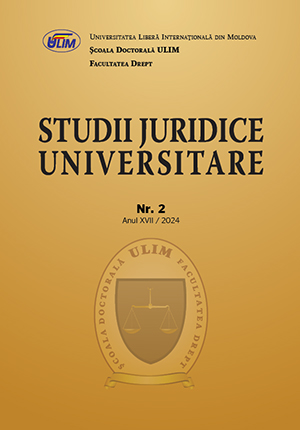The Evolution and Complexity of the Concept of “Legal System”: Normative and Sociological Approaches
The Evolution and Complexity of the Concept of “Legal System”: Normative and Sociological Approaches
Author(s): Ion Postu, Veronica RUSNACSubject(s): Law, Constitution, Jurisprudence, Philosophy of Law, Sociology of Law, Comparative Law
Published by: Universitatea Liberă Internațională din Moldova
Keywords: legal system; legal norms; comparative law; typology;
Summary/Abstract: This article examines the evolution of the concept of the legal system, tracing its origins from 18th-century political philosophy and legal theory to its modern interpretations in comparative law. It explores the close relationship between the concepts of “law” and “legal system”. The article delves into the distinctions and overlaps between law and the legal system, emphasizing their relevance in the contemporary analysis of legal phenomena. It traces the development of legal systems from early theoretical foundations to their current functions, analyzing how legal norms, procedures, and institutions interact with societal structures and values. Modern legal science does not have a universal approach to defining a “legal system,” but it generally encompasses both normative and sociological perspectives. The normative approach views the legal system as an ordered set of legal norms and institutions, while the sociological approach considers it a subsystem of the broader social system, influenced by socio-economic and political factors. This article argues for the use of the term “legal system” in legal typologies, as it provides a more comprehensive understanding of a country’s legal phenomena. The authors propose their own definition of the “legal system” concept.
Journal: Studii Juridice Universitare
- Issue Year: 2024
- Issue No: 2
- Page Range: 114-125
- Page Count: 12
- Language: English

